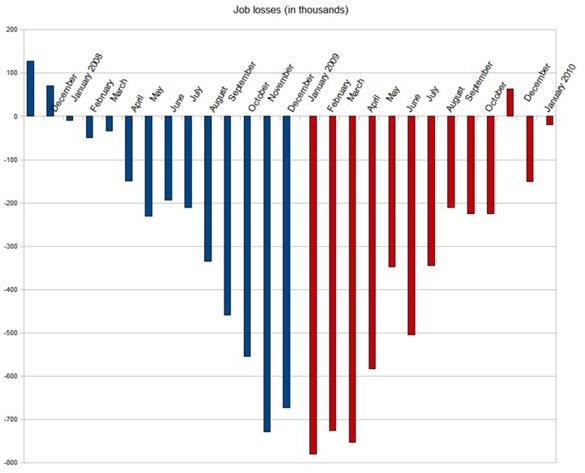Tax Treatment of Severance Pay: Keeping Uncle Sam Happy
In determining the tax treatment of severance pay, we will first establish the basic facts about severance compensation packages:
-
A severance pay is optional on the part of the employer but may be granted as a fulfillment of his moral obligation to a displaced employee or as a show of appreciation for the services rendered by a retiring or resigning employee. As such, the matters of whom, how much, how to, and when to pay this compensation benefit are all at the discretion of the employer.
-
Severance pay is different from the final regular pay received as remuneration for the last services rendered.
-
Regardless of an existing contract that stipulates a provision of severance payment upon termination, actual granting of this benefit is subject to the condition that the employee is not terminated for a good cause.
What are the Basic Tax Treatment Rules of Severance Pay?
As a general rule, employers are required to withhold all taxes due to the IRS before the employee receives the proceeds of the severance package. This will be evidenced by the W2 form, which contains information about all wages paid by an employer to an employee during a particular year, including the final pay and severance pay if any. It will likewise indicate how much taxes were withheld and remitted by the employer to the IRS on behalf of the employee .
Recipients of said wages and benefits will therefore file tax returns accordingly to report all income and compensation received during the same taxable year. The following are benefits which may or may not form part of a severance pay package and are included only as a medium for discussing the tax treatment of severance pay compensation benefits.
Tax Information about Separation Pay Benefits

Severance Pay - The portion of a severance package paid to an employee in recognition of his valuable services. It is not considered as a gift, but forms part of wages earned by an employee. Hence, this is taxable and should be reported to the IRS by the recipient in the year it was actually received, and it should be based on the gross amount.
Unused Leave Credits - The employee’s accumulated unused sick leave and vacation leave may be included as part of the severance compensation package. The cash equivalent of such leaves paid out as benefits form part of the employee’s wages and are therefore taxable. The gross income for the tax year will include all cash equivalents received during the same tax period.
Health and Accident Benefits - A company may include as a severance benefit the continuation of health and accident coverage of employees for a specified period of time. The amount paid by the employer does not form part of the terminated employee’s taxable income. Simply stated, this portion of the severance package is tax-free. (Revenue Rule 85-121, 1985-1 CB 57)
Group Life Insurance - The continuation of group life insurance for a specific period of time may also be included by an employer as part of a severance pay package. The cost of $50,000 or less group life insurance is generally excluded as part of the employee’s taxable income. If the value of the group life coverage exceeds $50,000, the difference between the costs of the tax-exempt coverage and the costs of the above-ceiling coverage will be considered as taxable and shall form part of the employee’s gross income
Pension Credits - Additional pension credits added to a qualified retirement plan may also be included in the severance package and are generally not taxable. The employer should notify the employee if the retirement plan is qualified because the latter’s tax-exemption eligibility will depend on whether the IRS acknowledges the plan as qualified.
In case the pension plan is qualified, the pension credits become taxable only if the employee makes pre-withdrawals prior to retirement. The taxes shall apply on the withdrawn amount during the year the withdrawal was made, while the tax due on withdrawn amounts shall be computed commencing from the date of pension credit through the date of withdrawal.
Supplemental Unemployment Benefits - Supplemental unemployment benefits, including those received from a state agency or federal government, are generally taxable. For more detailed discussions about the employee’s tax obligations for this benefit, readers may refer to a separate article entitled: “Explaining Supplemental Unemployment Benefits to Employees” and find the tax information under the sections Clarifying the Tax Liabilities & Exemptions of SUB Recipients and Conditions that Exempt SUB from IRS Liabilities.
Please continue on Page 2 for more on Tax Treatment of Severance Pay
Tax Information about Separation Pay Benefits (continuation)
Stock Options - Options that form part of a severance package become taxable when the employee exercises his right to buy the shares of stock. The option offered refers to the point in time that the buying or selling of the stock will be deferred, until such time that the value of the stocks presents more income-earning opportunities for the employee.
If the stocks have a predetermined value (statutory stock option), the amount considered as the employee’s taxable income is the difference between the predetermined value and the fair market value at the time the stock option was exercised.
If the stocks do not have predetermined values (non-statutory stock option), the taxable income is the difference between the actual cost of the stocks and the fair market value at the time of the exercise. For more details in determining the tax treatment on severance pays related to stock option benefits and exercise, readers may refer to IRS Publication 525 —Stock Options— page 11.
Outplacement Service - Some employers include this service as part of a severance pay, in which employees are offered training programs to qualify for other employment opportunities or to start up their own businesses. This is basically tax exempt as a fringe benefit of the employee.
However, if the offer includes an option to receive its equivalent in cash, which the employee elects to receive in lieu of the Outplacement Services, the cash equivalent received becomes taxable and will be reported by the employee as part of his gross income.
Information about Electing for Withholding Tax Exemption
As part of the discussion about tax treatment of severance pay, additional information is provided regarding eligibility for withholding tax exemptions.
Generally, the exemption applies to a low amount of income–for which an employee has good reasons to anticipate a refund from taxes withheld during the taxable year. The employee had made estimates that his tax return will result to zero liability.
However, if upon the assessment of the IRS the estimated tax filed by the employee did not result in zero liability, the employee will be liable to pay not only the correct taxes due but also penalties computed from the date the tax should have been withheld. In addition, should the IRS prove that there was a deliberate act of evasion or even acts considered as attempting to evade or commit fraud, the IRS has the right to file criminal charges against the taxpayer.
Allowable Job-Search Tax Deductible Expenses

Displaced employees or those who lose their jobs due to involuntary termination may include certain job-hunting expenses as deductibles to their gross income for the year, even if the employee is still out of job as of tax-return filing. Job-search expenses incurred by first-time job seekers or by those seeking a new line of work are not deductible expenses.
This may include (1) Online services of job agencies, (2) Cost of Resumes, (3) Subscriptions to job Information sources, (4) Telephone bills incurred in relation to arrangements for interviews and postage to mail the letters of application and resume, and (5) Travel expenses related to job-hunting and interview appointments.
Fees Paid to Job Agencies – paid by the employee are allowable deductions. On the other hand, if the job agency fees form part of the “Outplacement Services” availed by the employee, the related amount is not taxable.
Relocation Costs – relocation expenses incurred by the displaced worker to the place where a new employment awaits the unemployed person are allowed as deductible expenses during the tax year he was considered as a displaced worker. The IRS provides a test of time and distance to determine if the amount is allowed as a deductible.
If the displaced worker sold his house as part of his relocation process, any loss resulting from the sale of the property is not considered as an allowable deduction.
Educational Expenses – Displaced employees who meet the requirements of a job or profession may include as deductible expenses the costs of additional education taken up to enhance or improve their skills, thus increasing their chances for employment. IRS provides a one-year timeframe for this purpose, although there have been tax court rulings that supported instances where the timeframe went beyond one year.
Reference Materials and Image Credit Section
References:
- IRS Publication 525 Taxable and Non-Taxable Income — https://www.irs.gov/pub/irs-pdf/p525.pdf
- Tax Impacts of Job Loss — https://www.irs.gov/pub/irs-pdf/p4128.pdf
Image Credits:
